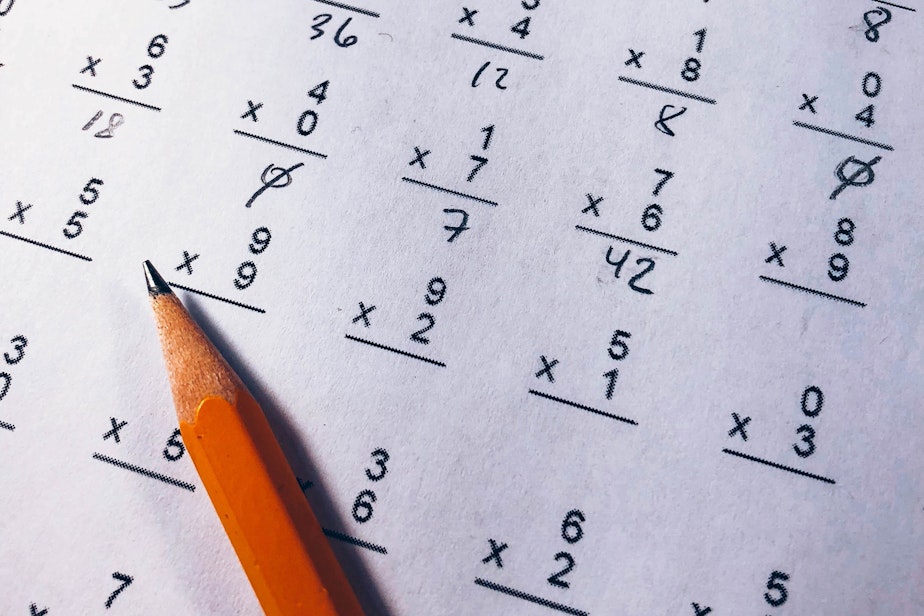Seattle Schools' report card mirrors statewide dip in standardized test results

After nearly two years of learning during a pandemic, and all the disruption that came with it, we have some new data from Seattle Public Schools that shows how students are doing in math and English/Language Arts.
KUOW’s Kim Malcolm spoke to education reporter Ann Dornfeld about the details.
This interview has been edited for clarity and accuracy.
Kim Malcolm: Scores had dropped in the standardized test statewide results last month. Is there a similar pattern for Seattle school kids?
Ann Dornfeld: There is. In Seattle, the scores showed that only about half of the students who took the test were at grade level in math, and that about two-thirds were at grade level in English/Language Arts. That's lower than usual by about 10 to 15 points on average. But, Seattle schools warned we really can't compare these results to previous results for a few different reasons.
Why wouldn't they be comparable to how students did before?
Usually, students take the state test at the end of the school year, what they've learned is still fresh in their minds. If you imagine taking a final exam six months after you took a class, you probably wouldn't ace that test. Another factor is that the test was a lot different than the format of previous years. Also, all the questions were adaptive this year, which is to say that the computer students took the test on gave them more difficult questions if they did well on the easier ones, and simplified questions if they were having trouble on the tricky ones. For those reasons, it’s kind of an apples and oranges comparison.
Sponsored
Is there anything useful that educators can get out of these assessments?
Seattle Public Schools said this is just one measure of student growth, but can be useful to gauge how well a particular student is doing over time. The district's associate superintendent is Concie Pedroza. She said that the district acknowledges that there is diverse thought on the purpose of assessments and how the district uses them and that the state test alone cannot be solely used in determining success or growth.
Critics say that the tests are flawed, that they create perverse incentives in the classroom to teach to the test, and that they let subjects that are peripheral to those tested fall by the wayside. So, that's kind of an unusual acknowledgment from the school district after many years of focusing success and its measure on standardized tests.
Our kids’ lives were severely disrupted. It's been well reported that their emotional and mental health really took a hit during the pandemic. So, there may well be people who say these scores really shouldn't be our focus right now.
That's widely what I found. I can say that about 0% of the teachers and school staff I've spoken with since schools reopened this fall have been looking primarily at catching students up academically. What I keep hearing from people is that their main concern right now is how students are doing emotionally and mentally, and how much they've suffered and continue to suffer due to the pandemic.
Sponsored
Kids are still expected to take the standardized test. When are they going to be doing it next, and how useful do you think those results are going to be?
The next time they’ll take it is in the spring, and those results will be more useful for folks who want to do more of an apples-to-apples comparison. They'll be able to compare these spring test results at the end of the school year to previous tests at the end of other school years. That will be a better basis of comparison.
Correction 2/16/22 1:12 pm - A previous version of this interview misstated Concie Pedroza's title.





